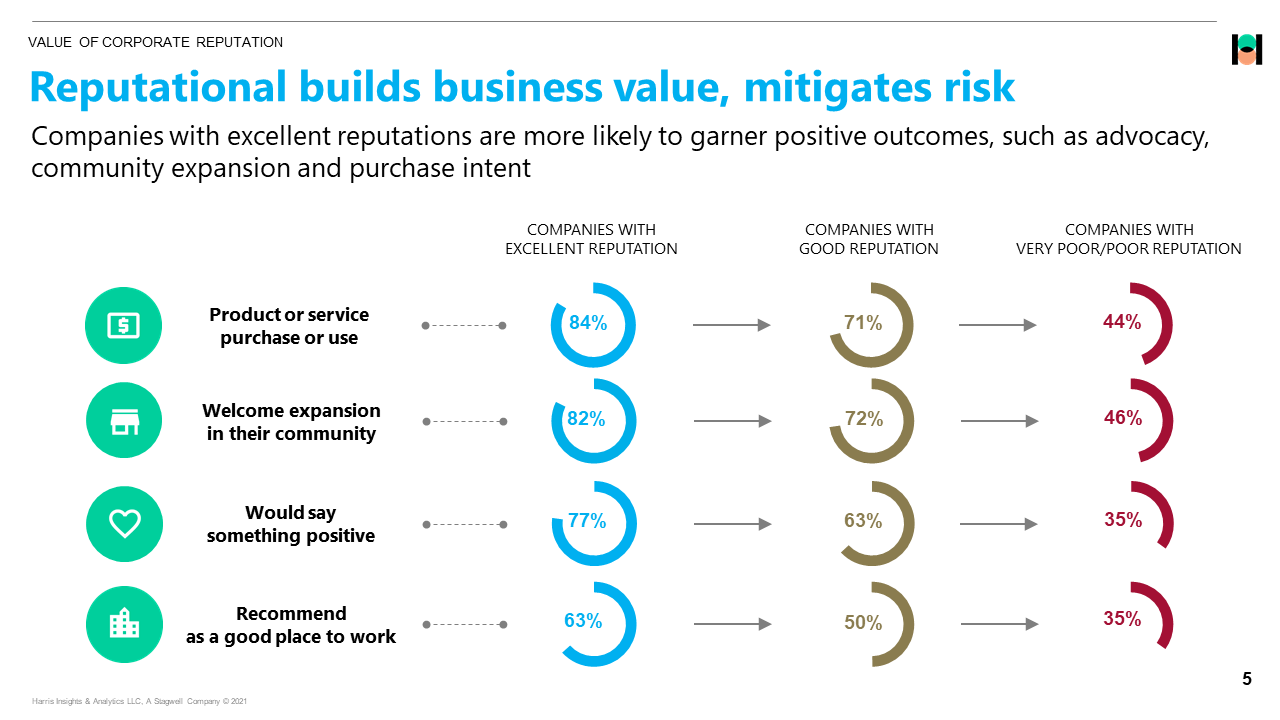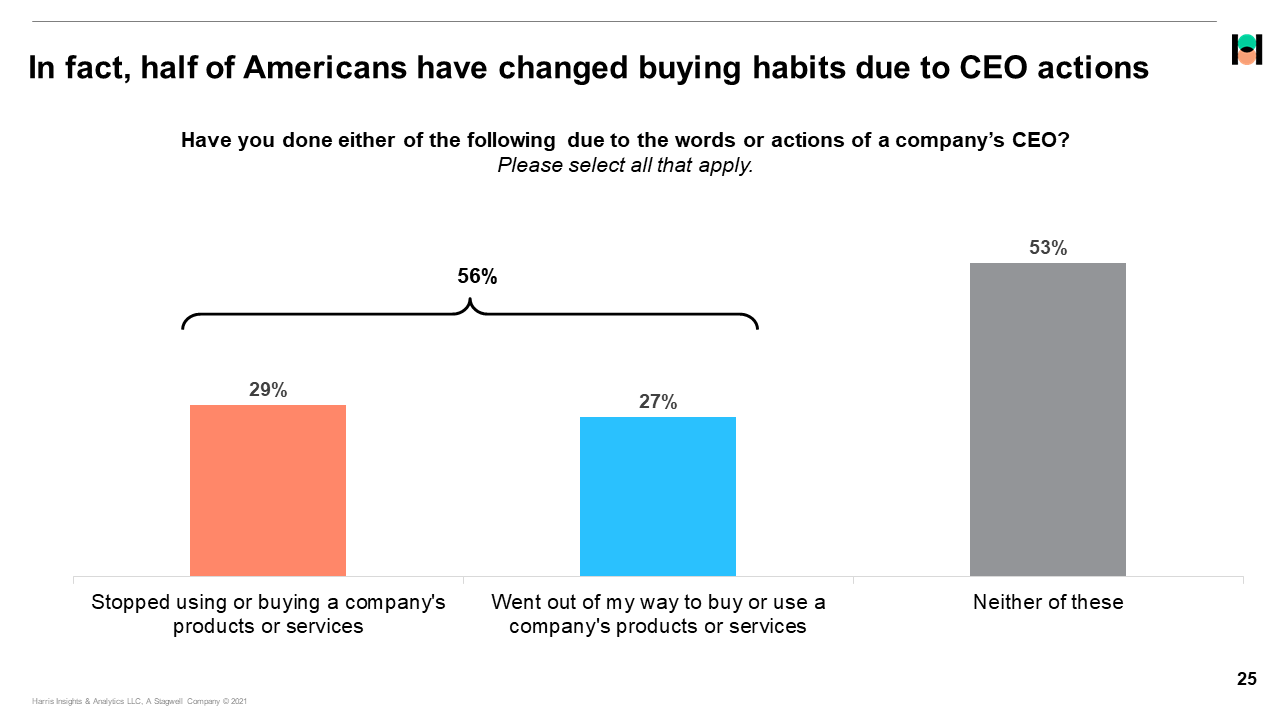Marketing Frontiers
Reputation: Why it Matters
By
Ray Day
Stagwell Vice-Chair
CONTACT
hello@stagwellglobal.com
SIGN UP FOR OUR INSIGHTS BLASTS

“It takes 20 years to build a reputation and five minutes to ruin it. If you think about that, you’ll do things differently.” – Warren Buffet
Today, corporate reputation means more than mastery of the marketplace. Reputation is a measure of what all stakeholders – including consumers, employees, shareholders, and more – think about a company.
Contrary to “brand” – which measures a company’s products & services, typically among specific consumer segments, a reputation is earned not created.
Reputation is comprised of your company’s performance + its behavior in the marketplace, reflected through its internal and external marketing communications. When reputation is curated, it has the potential to build business value and can help mitigate risks. Companies with excellent reputations are more likely to garner positive outcomes, such as advocacy, community expansion and purchase intent.

Today’s corporations and CEOs have greater permission from the public to address complex social issues – within bounds. Reputation today is evolving today to reflect more than just a product or service set, but a businesses’ commitment to serve society.
In recent years, geopolitical, economic, and social developments have created a society in transition and turmoil. Consumers have more expectations of corporations in this environment – not least because of declining trust and expectations in institutional actors such as governments and municipalities. As measured by Stagwell’s 2021 Reputation Quotient, brands across nearly every business sector experienced a reputational boost during the height of the pandemic as consumers looked to the private sector for solutions where public officials were failing to create them:
CEOs, and in a limited capacity other star of the C-Suite such as CMOs, are rapidly gaining reputational capital within the market and with consumers. They influence sales, perceived product/service quality, and signal the strength of an organization’s culture. As CEO reputation extends outward, when to exert influence in society becomes more calculated and more important. Americans say CEOs most affect reputation, ethics, and financial success for today’s organizations. CEOs also have a growing public awareness and influence on consumer sales; half of Americans report changing buying habits due to the actions of a CEO.

More traditional C-suite players like Jamie Dimon at Goldman Sachs leverage influence in quieter, more sustained ways – Dimon’s annual letter is a bellwether for the future of global financial markets, with wide-ranging through leadership implications for businesses within and beyond the financial services category.
With that reputational capital comes the burden of leadership: the public believes CEOs should stand on issues where they have credibility, not where they don’t have a voice or authority. Ultimately, core values should be the navigator of social issues. Alienation is a risk in a highly polarized society, but so too is the risk of stakeholders who perceive CEOs as indifferent or in conflict with the company’s principles. This is especially true among younger and Black Americans. While standing down is expedient, a generational and cultural divide is growing that will make decisions more difficult and polarizing.
Corporate and CEO reputation is changing quickly. Stagwell is a leader in global reputation tracking and management; learn more about the Reputation Quotient, an annual collaboration between Stagwell, Axios, and The Harris Poll tracking the most visible companies in America. Register to receive our 2022 research when it releases in May.
Related
Articles
Artificial Intelligence, In the News, Marketing Frontiers, Press Releases, Stagwell Marketing Cloud, Tech
Jun 12, 2025
PRophet, a Stagwell (STGW) Company, Completes Integration of UNICEPTA, Launches Unified Brand and Enhanced Media Intelligence Offering

In the News, Marketing Frontiers, Press Releases, Stagwell Marketing Cloud, Tech
Jun 11, 2025
The Marketing Cloud Launches Cutting-Edge Platform to Simplify Marketing Workflows

In the News, Press Releases, Thought Leadership
Jun 10, 2025
Stagwell (STGW) Chairman and CEO Mark Penn to Discuss the Irreplaceable Power of Human Creativity on the Main Stage of Cannes Lions





